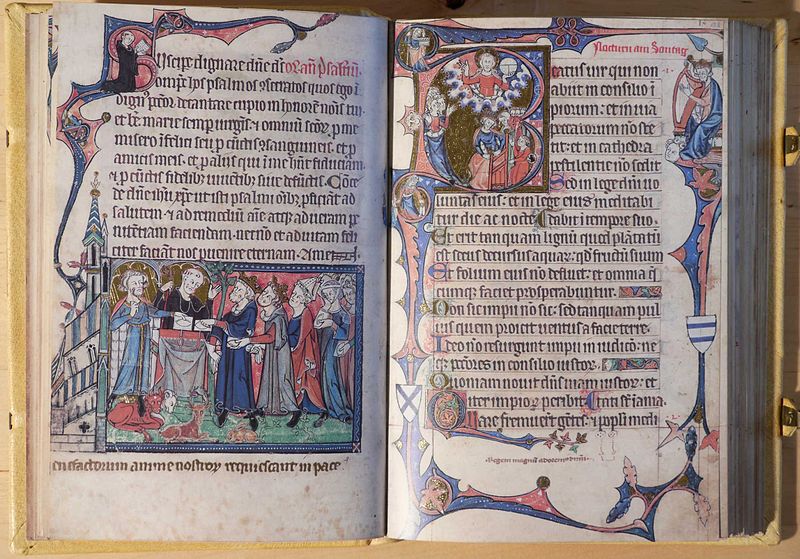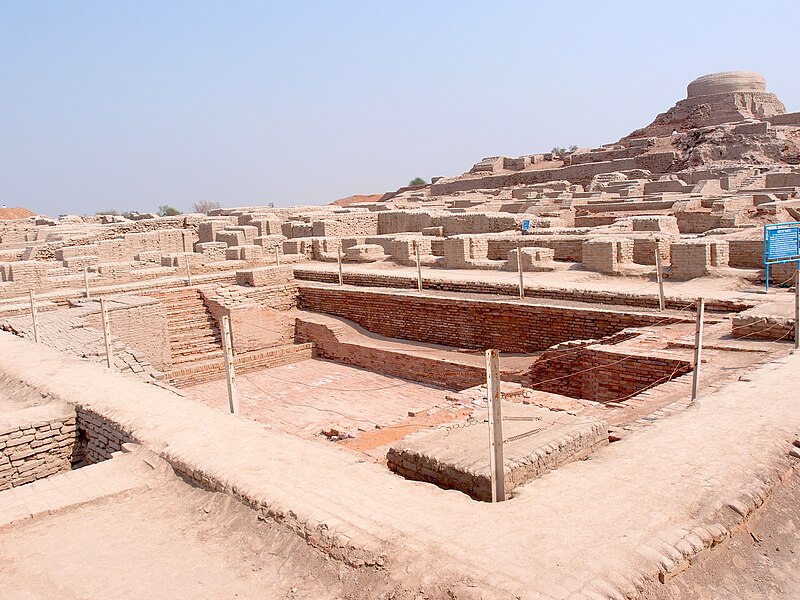 |
| Dr. Shaye Cohen, Littauer Professor of Hebrew Literature and Philosophy. Also, a terrific lecturer. Check out his iTunes University class. |
| The Skeptic's Annotated Bible appears to have been written by fans of Mystery Science Theater 3000 |
and that's committed by the good guys. The stories in the Hebrew Bible are as depraved as those one finds in Greek mythology, or Japanese mythology, or Sumerian mythology. The Hebrew Bible, at least the historical narrative parts of it, is a national epic. It's the Hebrew "story" in the way that "The Iliad" is the Greek story, and "The Epic of Gilgamesh" is the Sumerian story and "The Spring and Autumn Chronicles" is the Chinese story. These stories are not historically accurate (although it must be noted, they're not invariably wrong, either). That's not their function. These stories serve as a shared identity mechanism within the communities that tell them.
| Gilgamesh strangles the lions. That's how old the "Tarzan kills a lion with his bare hands" archetype is. |
And, they tend to be over-heated soap operas. I suspect that "scandalous" and "sensational" are useful characteristics for an oral tradition to have, if it is going to last.
The oral traditions that make up the stories in the Torah and the Deuteronomist Histories don't appear to have been written down in the form we know them until the Babylonian Exile, which took place during the 6th century BCE. And they are a work of power, and genius, and vision that has been equalled in human history, but never surpassed. I say this as an atheist, remember...
At the time of the Babylonian Exile, the Kingdom of Judah had been conquered by Babylon. It's aristocracy, including its priestly class, the wealthy, the literate, the elites of Judean society were forcibly relocated to Mesopotamia. The Temple which had served as the focus of Hebrew identity had been destroyed, the "Covenant" in which their God had promised them the Land of Canaan had been violated, and they were living in a foreign culture where their traditions and practices were being overwhelmed.
They had an example of just how easily Hebrew identity could be snuffed out by a conquering imperial power. 150 years earlier, the Assyrians had destroyed the Northern Kingdom of Israel, scattered its population and colonized the now ownerless property. They effectively destroyed Hebrew identity within the territory of the former Kingdom. The remnants of "the Ten Tribes" left in the region became the "despised Samaritans" of the New Testament.
The writing of the Torah and the Deuteronomist Histories was undertaken by highly educated Israelite elites while in exile, almost certainly members of the priestly class. They did it because they were attempting to maintain the Hebrew identity of their community in exile, and they were brilliantly successful. Seven decades later these writings had preserved a community of "Hebrews" sufficiently committed and nationalist to return to Jerusalem and reestablish an Israeli State. Two and a half millennia later, the stories the Exiles composed on the basis of confused and contradictory oral traditions still serve as a central tradition for the identity of Jews, Christians and Muslims.
The Hebrew Bible is not history. The Hebrew Bible is not the revealed Word of God. The Hebrew Bible is a work of nationalist propaganda so compelling that it inspires group formation and community identification thousands of years after the community it was intended to create ceased to exist.
 |
| Image from Wikimedia Commons |
This is an important point to understand; the Ancient Hebrews, or "Children of Israel" if you prefer, are not today's "Jews". As Dr. Cohen points out, it is impossible to claim Jews are somehow the genetic descendants of the Ancient Hebrews when Judaism allows non-Jews to convert. Jews and Christians both preserve important elements of the traditions and beliefs of the Ancient Hebrews. Jews and Christians both identify with the Ancient Hebrews, to the point of believing that the ancient covenant described in the Torah applies to them. But neither Rabbinical Judaism nor Christianity is the same religion practiced by the Ancient Hebrews, with its bloody animal sacrifice, ritual impurities and open, savage genocide.
The actual story of the children of Israel is considerably more confused and hazy, and a lot less monotheistic than the version written down almost 1000 years later.
The earliest reference to Yahweh that we know of occurs in cuneiform texts uncovered at the archeological site of Ugarit, and dating back to about 1500 BC. In the pantheon of Ugarit, there was a supreme but rather passive creator God named El. He had a more active Prime Minister, called Ba'al. That name should ring a bell for those of you who attended Sunday School; Ba'al worshippers are the implacable enemy of the "true" god, Yahweh throughout the pages of the Hebrew Bible. Ugarit also had around 70 other gods, each of whom was the special patron of a particular ethnic community living in the general area of Canaan.
Yahweh appears to have been the special patron of a group of pastoralists living in the hills south of the Negev. These pastoralists may or may not have been related to the "Habiru" mentioned in a number of Bronze Age sources.There are tantalizing hints of this in the Book of Genesis; Abraham is befriended by someone named Melchizedek in Genesis 14 who is described as "King of Salem" and "a priest of the most high God". That's generally thought to mean Abraham's god, Yahweh. (It might also be a reference to El; the story belongs to the oldest versions of Genesis, long before monotheism.)
After the Bronze Age Collapse, the pastoralist Yahweh worshippers suddenly had fewer neighbors living in the fertile lands to their north. Cities like Ugarit had been burned, and the surviving population had fled into the countryside. The pastoralists gradually moved north, bringing their religion with them and bullying the shell-shocked Canaanites in a gradual process symbolized by the fictional events depicted in the Book of Joshua.
This process lasted for centuries, between perhaps 1200 BCE and 1000 BCE. Joshua is a fascinating read, on a number of levels. Despite having been written perhaps 700 years after the events it purports to chronicle, it tells an old, old Mesopotamian story. For 3000 years, starting with the Sumerians, the same sequence of events played itself over and over again. An urban culture would begin to thrive, trade and the economy would flourish, an elite would begin to separate itself from the mass populace based on possession of prestige goods and other privileges...
 |
| Image from here |
and then Semitic pastoralists would sweep in from the periphery and install themselves as the new bosses. The story repeated itself for three millennia, whether it was the Chaldeans or the Amorites or the Arameans or the Hebrews. Joshua is a distant echo of what were deafening crashes at the very beginnings of recorded history.
The Hebrews brought Yahweh with them from the south. But they weren't monotheists, yet. It appears there were family gods worshipped in each household, and Astarte/Asherah was widely worshipped as the consort of Yahweh. Over the next few centuries, (approximately the time the Book of Judges purports to chronicle), in a process known as "syncretism" Yahweh began to be attributed with some of the characteristics of both El and Ba'al. He became "the most high God".
As the area recovered from the Bronze Age collapse, the population increased and cities were rebuilt. The power vacuum that allowed the Hebrews to move north was filled, most notably by the Philistines. In an impressive confirmation of the Conflict Theory of State Formation, increased conflict with their neighbors spurred the formation of a true State. Around 1000 BCE, the Davidic monarchy conquered Jerusalem and made it the Capital of a true Kingdom. This resulted in two major modifications of Yahweh worship.
1. Kingship Theology: Every social elite attempts to legitimate its privilege by citing the Divine Will. In the religion of the ancient Hebrews, this manifested itself in the form of yet another covenant. Yaweh promised the House of David that they would rule in Jerusalem forever. It's always great when God steps in and clears up any doubt about which humans are in charge.
2. Jerusalem theology: The Temple at Jerusalem (either built by Solomon or perhaps seized by the conquering Hebrews from the Jebusite inhabitants) became the chief cultic center of Yahweh worship, diminishing and eventually replacing other centers like Shiloh or Bethel. Jerusalem theology asserted that Yahweh was physically seated at the temple in Jerusalem, within the Holy of Holies. On that basis, Jerusalem could never be conquered, because Yahweh would never allow "his" capital to be conquered.
| Unless otherwise noted, images are from Wikimedia Commons |
I can't do justice to the richness and complexity of the history of the Ancient Israelites here. There are many more centuries of Israelite history. The Davidic Kingdom splits, a social reform movement starts in the North Kingdom and moves to Judah after the Assyrian conquest...
as a Pentecostal, we kind of ignored the "Minor Prophets", but there's material there for an entire blog post about "The 99% Movement in History". This is class consciousness that precedes the Gracchi by 600 years. But I'll come back to that another time.
For now, let me just note that the entire basis of Yahweh worship as it was practiced at that time was decisively refuted in 597 BCE. When Babylon captured Jerusalem, the conquerors sacked the Temple and exiled the leading members of the society. The "eternal" covenants had been definitively falsified. The land was taken. The House of David was in exile. The area said to contain Yahweh's physical presence had been tramped through by plundering Babylonian soldiers.
Those exiles were confronting their extinction as a people. In response, they conceived an entirely different paradigm regarding the nature of God and his relationship to the Hebrews and the rest of humanity. They conceived a unified narrative from thousands of contradictory and confused oral traditions. They conceived a national identity that preserved their culture and allowed it to reemerge 70 years later.
They told a story of such compelling majesty that we still tell it today. And, we still believe it.
 |
| 1st Assembly of God, Hannibal MO |




_Linthwaite_-_geograph.org.uk_-_495886.jpg)















.jpg/800px-20110710_Kinderboerderij_Drongen_(0003).jpg)







